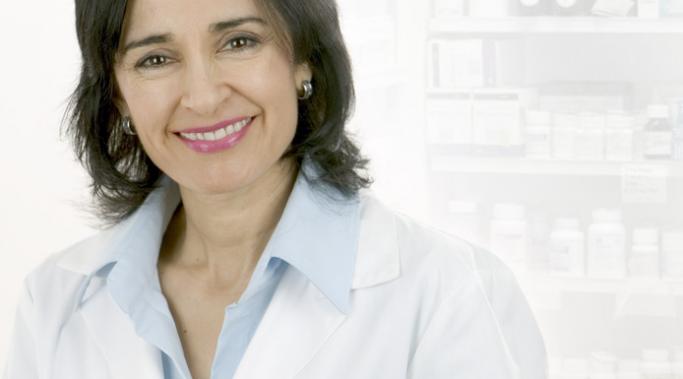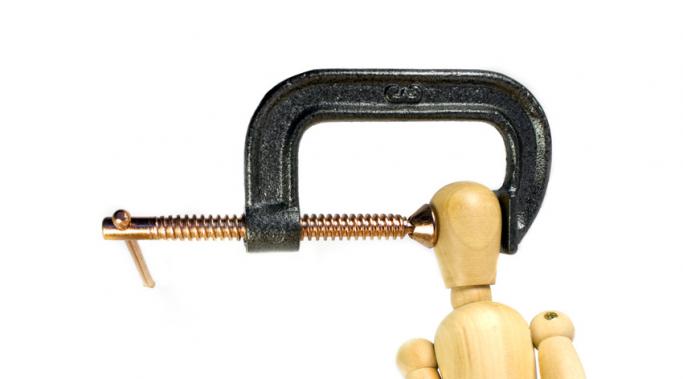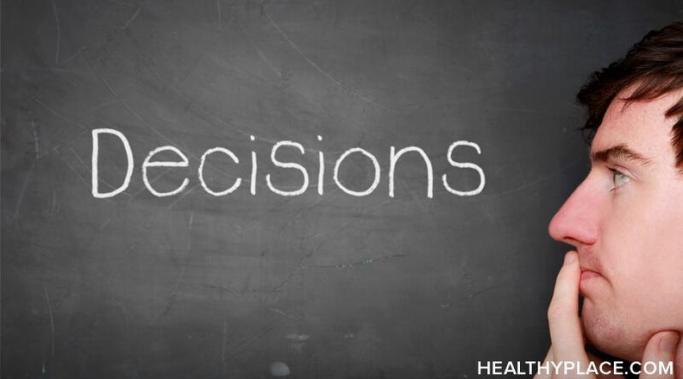Recently I went through a nasty bipolar medication change. I stopped one antipsychotic in favour of another. Of course, this was to improve my overall treatment. And as I’ve said before, if you change nothing then nothing changes, and in this case, I had to change medications in the hopes of changing my mental wellness.
It did not go well.
What ended up happening was a gradual slide into horrific suicidality. The new med was not effective for me.
But I learned something from this experience. Before changing bipolar medications, it’s a good idea to put into place a medication change safety plan.
Talking to Doctors
I am a very difficult case of bipolar to treat. Believe me. I have been on more bipolar medications than anyone I know and finding an effective cocktail is akin to walking on water. It’s possible, but it’s pretty darn rare. And recently I made a medication change from one antipsychotic to another. It went very badly in a whole host of ways. In fact, I terminated the medication trial early and went back to my previous medication.
I see my doctor this afternoon and now I have to tell him the bad news about how it went. And I feel guilty about failing another bipolar medication. I know he will be disappointed and I feel bad about it.
One of the dumbest things I’ve ever heard is of doctors not giving their patients their diagnoses. That’s right – the patient sees the doctor, the doctor does a full assessment, the doctor reaches a conclusion, but keeps it a big secret like an upcoming birthday party.
This is an example of parental doctoring and completely insults the patient.
Bipolar disorder has an approximate prevalence in society of 1% and obsessive-compulsive disorder has an approximate lifetime prevalence of 2.5%. When you put those two numbers together, you should have a very small population that has both bipolar disorder and obsessive-compulsive disorder.
However, this turns out not to be the case. Actually, according to a recent study, 50% of people with obsessive-compulsive disorder also have a depressive disorder and 10% have bipolar disorder.
In short, if you happen to have both disorders, you’re not alone.
Hi. My name is Natasha and I have bipolar disorder. In fact, I have had bipolar disorder for at least 14 years. And many of those years I spent not really getting better.
Much to the chagrin of the doctors and those around me. After all, if I was taking pills, seeing a psychiatrist and psychologist, shouldn’t my wellness be just around the corner?
Sometimes I felt pressured to just say “yes, I’m feeling better,” when that wasn’t the truth of the matter at all.
I have been seeing a psychiatrist for about 14 years now. There have been many different individuals, but I’ve been seeing one or another for most of that time.
And in all of that time I’ve noticed something – I get anxious before a psychiatric appointment. Even though I’ve been doing this seemingly forever, when it actually comes time to sit in the waiting room and then be taken to the tiny room with the dingy paint, I feel anxious.
I use the word “doctor” quite liberally and often use it interchangeably with “psychiatrist.” The reason is quite simple – psychiatrists are, in fact doctors, they are just specialists. Yes, that’s right, your psychiatrist has all the rights and privileges that any other doctor has and could probably remove your spleen, if the occasion called for it.
Nevertheless, there are some crucial differences between “doctors” in general and “psychiatrists” in particular. And sometimes you need a psychiatrist and sometime any old doctor will do. So how do you know if you need a psychiatrist?
Earlier this week I wrote a piece about being scared of trying antidepressants and as one commenter pointed out, there are increased risks associated with treating a person with bipolar with antidepressants. In fact, some would say that treating a bipolar person with antidepressants can worsen the course of the illness (always contraindicated as monotherapy and possibly undesirable altogether). Now, when I wrote the article I was only thinking of unipolar depressives, but, as one commenter pointed out, being diagnosed, correctly, with bipolar disorder, in itself, can be a challenge.
And this is absolutely true. Studies have found that it takes 5-10 years (from the time of the first episode) for a person with bipolar disorder to get an accurate diagnosis. There are many reasons for this, predominantly that people don’t get help when they have their first episode, but a major contributing factor is also misdiagnosis. People with bipolar disorder are often diagnosed with depression or schizophrenia first and this can have devastating outcomes.
I remember, before trying medication, I was terrified of it. I had the same misconceptions that many people do:
Medication is for weak people
Antidepressants are just “happy drugs” designed for people who can’t handle life
Medication will ruin your brain
Doctors give out antidepressants like candy whether you need them or not
As it turns out, none of these things are true, but they sure seemed true at the time.
So I get fear of antidepressants and other medication. Psych medication is scary stuff.
But sometimes you have to face that fear in order to get better.
In my last post I talked about what it is to be an e-patient. These are the people who are engaged in their own healthcare - they are empowered patients. But if your relationship with your doctor is more passive, how do you become empowered?


![MP900432989[1]](/sites/default/files/styles/blog_listing/public/uploads/2012/09/MP9004329891-682x1024.jpg?itok=NpPW8BSS)
![MP900442726[1]](/sites/default/files/styles/blog_listing/public/uploads/2012/09/MP9004427261.jpg?itok=_AH3CRWY)

![MP900444553[1]](/sites/default/files/styles/blog_listing/public/uploads/2012/07/MP9004445531.jpg?itok=GnVkuGu7)


![MP900255362[1]](/sites/default/files/styles/blog_listing/public/uploads/2012/06/MP9002553621.jpg?itok=ccR4teIZ)
![MP900386199[1]](/sites/default/files/styles/blog_listing/public/uploads/2012/05/MP9003861991.jpg?itok=UjPcJoRw)